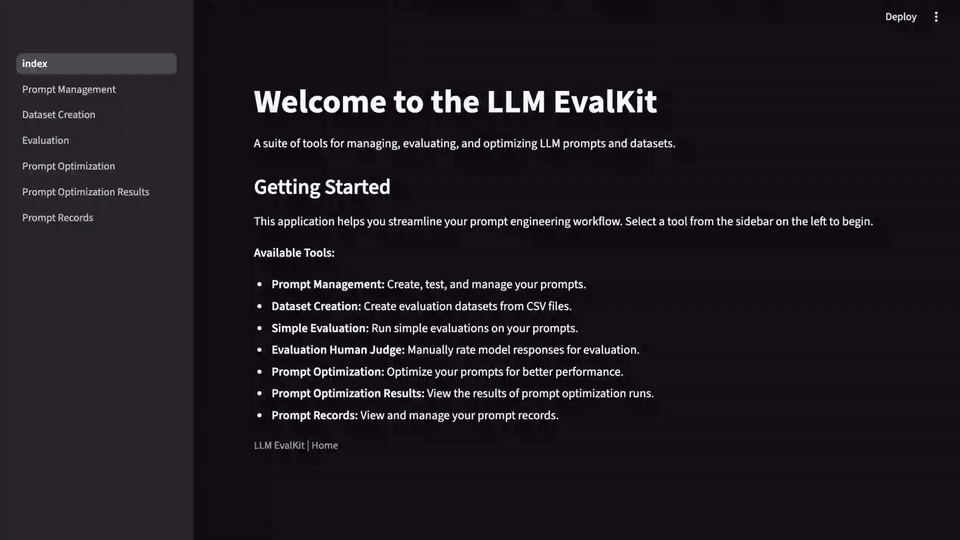If you've ever managed large language model (LLM) prompts across different tools and documents, you know how chaotic and inefficient the process can be. Iterating on prompts without a unified system often leads to duplicated effort, inconsistent evaluation, and an unclear sense of what actually improves results. Introducing the LLM-Evalkit: Google Cloud’s new, open-source framework that promises to centralize and streamline prompt engineering for teams working with LLMs.

Bringing Structure to Prompt Engineering
is built on Google Cloud’s Vertex AI SDKs, providing an application that lets teams organize every stage of the prompt engineering lifecycle in one place. Instead of juggling between multiple consoles, documents, and evaluation tools, users now have a centralized hub for prompt creation, testing, versioning, and benchmarking. This unified approach ensures all team members are on the same page, with a reliable system of record to track prompt history and performance over time.
- Centralized workflow: No more scattered documents or ad-hoc testing—everything prompt-related lives in one interface.
- Consistent evaluation: Standardized processes mean that prompts are tested and measured the same way, every time.
- Streamlined collaboration: A shared workspace fosters alignment across technical and non-technical team members.
From Guesswork to Data-Driven Decisions
Traditional prompt engineering often relies on intuition or limited manual testing, making it hard to justify or replicate improvements. LLM-Evalkit encourages teams to shift from subjective assessments to objective, metric-driven iteration. The methodology is straightforward and practical:
- Define your problem: Start with a clear task or use case for the LLM.
- Curate a dataset: Gather or create representative test cases that the model will encounter in production.
- Measure outcomes: Establish concrete metrics to objectively score prompt performance against your dataset.
By focusing on measurable results, teams can track which prompt changes lead to real improvements, enabling a more scientific and scalable engineering process. This approach not only boosts model quality but also builds confidence in the decisions being made.
No-Code Accessibility for the Whole Team
Prompt engineering shouldn’t be the exclusive domain of developers. LLM-Evalkit’s no-code, user-friendly interface opens up participation to product managers, UX writers, and domain experts who may lack coding skills but possess valuable insights. By democratizing prompt development, organizations can iterate faster, explore a broader range of ideas, and facilitate richer collaboration across roles.
- No-code interface: Enables anyone on the team to build, test, and refine prompts without technical barriers.
- Faster iteration: Reduces bottlenecks by allowing more contributors to engage in the process.
- Better collaboration: Leverages the diverse expertise of both technical and non-technical stakeholders.
Getting Started and Next Steps
LLM-Evalkit is open-source and freely available, with detailed documentation to help teams get up and running quickly. For those new to Google Cloud, there’s $300 in free credit and ongoing access to more than 20 AI products each month. The most current evaluation features are accessible directly in the Google Cloud console, and a guided tutorial is available for those who prefer step-by-step assistance.
Whether you’re just exploring prompt engineering or looking to bring order to a complex workflow, LLM-Evalkit offers a practical, scalable solution. By centralizing processes, enabling metric-driven iteration, and lowering the barrier to participation, this tool empowers teams to build better LLM-powered applications faster and more collaboratively.
https://github.com/GoogleCloudPlatform/generative-ai/tree/main/tools/llmevalkit

Streamline Your Team’s LLM Prompt Engineering with Google Cloud’s LLM-Evalkit